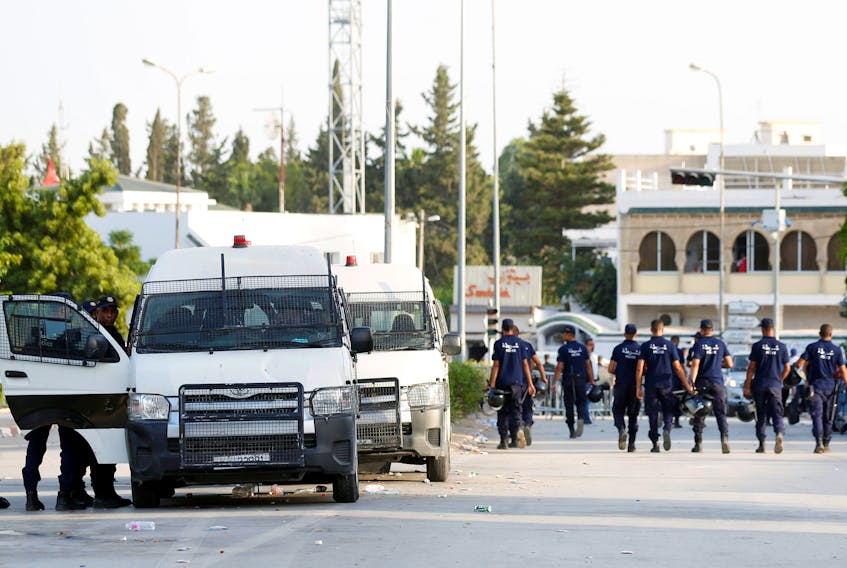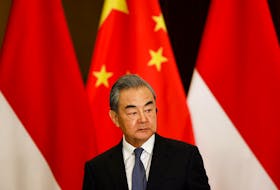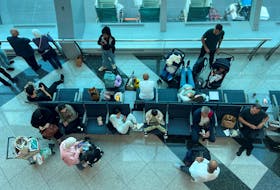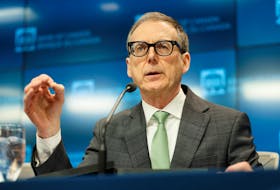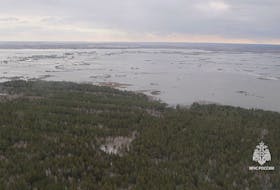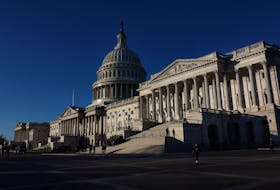By Karin Strohecker
LONDON (Reuters) - From Tunisia and South Africa to Colombia, social unrest is sweeping through developing countries, a reminder of income inequalities that have deepened during the COVID-19 crisis.
While developed countries have deployed massive injections of fiscal and monetary stimulus to shelter economies and citizens since the pandemic began early last year, poorer nations lack the same firepower.
The charts below detail some of the causes and consequences of civil unrest across the developing world:
1/UNREST ON THE RISE
Riots, general strikes and anti-government demonstrations around the world increased by 244% over the last decade, according to the 2021 Global Peace Index.
Produced by think tank the Institute for Economics and Peace, the Index ranks more than 160 countries and territories according to their peacefulness.
The nature of such unrest has changed, however: tensions increasingly stem from the economic blow of the pandemic.
"Growing unease with lockdowns and rising economic uncertainty resulted in civil unrest increasing in 2020," the authors of the latest index report wrote.
"The changing economic conditions in many nations increases the likelihood of political instability and violent demonstrations," researchers noted, adding they recorded more than 5,000 pandemic-related violent events between January 2020 and April 2021.
They expect little respite in the near-term.
(For graphic on Global Peace Index 2021 - https://fingfx.thomsonreuters.com/gfx/mkt/zgvomwkmdvd/Global%20Peace%20Index%202021.PNG)
2/THE PANDEMIC FACTOR
Disease outbreaks, from the bubonic plague in the Middle Ages to the 1918 Spanish flu pandemic, have shaped politics, subverted the social order and often caused unrest.
Epidemics reveal or worsen pre-existing fault lines; countries with more frequent and severe epidemics also experienced greater unrest on average, International Monetary Fund researchers found.
A pandemic can suppress unrest in the early stages, IMF economist Philip Barrett found -- as witnessed in the last year, with the notable exceptions of Lebanon and the United States.
Thereafter the risk spikes -- including heightened risk of a major political crisis that threatens to bring down a government and which typically occurs in the two years following a severe epidemic.
Tunisia, whose already weak economy has been further devastated by COVID-19, looks a prime example: President Kais Saied sacked the government on Sunday after months of protests, marking the biggest political crisis since the country's 2011 revolution.
(For graphic on Pandemics and unrest - https://fingfx.thomsonreuters.com/gfx/mkt/lbpgnrlalvq/Pandemics%20and%20unrest.PNG)
3/TRIGGERS AND DRIVERS
There are usually early warnings that risks are on the rise.
Higher living costs stemming from reforms such as removing food and fuel subsidies usually contribute. Another factor often seen is the dismantling of mechanisms such as an independent judiciary, free press or freedom of assembly, all of which allow for peaceful dissent, said Miha Hribernik at risk consultancy Verisk Maplecroft.
The presence of large marginalized groups - political or religious - add to the mix.
Examples abound: a spat over a tiny metro ticket price hike sparked Chile's 2019 protests, though deep grievances around income inequality were already simmering.
In South Africa, deadly protests kicked off in July after the arrest of ex-President Jacob Zuma. But they were also likely to be a culmination of tensions caused by lockdown-induced job losses.
"The 'spark' that ignites protests is often the proverbial straw that breaks the camel's back, and is impossible to predict," said Hribernik.
(For graphic on countries with poor post-pandemic recovery capacity face a perfect storm - https://fingfx.thomsonreuters.com/gfx/mkt/dwpkrgkrqvm/Countries%20with%20poor%20post-pandemic%20recovery%20capacity%20face%20a%20perfect%20storm%20of%20unrest%20over%20the%20next%202%20years.PNG)
4/THE MACRO IMPACT
Economic fallout depends on drivers and country-specific circumstances. Protests linked to politics or elections often have a small impact - demonstrations after the 2012 election of Enrique Pena Nieto as Mexico's president or Chile's 2013 presidential vote had reduced GDP by 0.2 percentage points six months later, IMF researchers calculated.
But if the unrest is driven by socio-economic concerns, contractions tend to be sharper, the Fund said, citing the July 2019 Hong Kong protests or France's 'yellow vest' unrest in 2018.
Both shaved one percentage point off GDP, the IMF estimates.
"Demonstrations triggered by a combination of both socio-economic and political factors - not unlike what we saw in Tunisia and Thailand earlier this year - have the biggest impact," the IMF's Metodij Hadzi-Vaskov said.
Weak institutions and limited policy space amplify the hit, meaning countries with weak pre-pandemic fundamentals will suffer the most should social discontent turn into unrest.
(For graphic on Economic impact of social unrest - https://fingfx.thomsonreuters.com/gfx/mkt/jnvwegxqlvw/Economic%20impact%20of%20social%20unrest.PNG)
4/MARKET & POLICY MAKING IMPLICATIONS
Stock markets in authoritarian countries suffer more during protests, falling 2% within three days of such an event and 4% in the following month, the IMF calculates.
Tunisia's dollar bonds tumbled after its latest political crisis. South Africa's rand slid in the days after protests ripped through the country, with disruptions to its busy shipping ports felt well beyond its borders.
Some governments opt to soothe protesters with bigger handouts but then face questions on funding budget deficits. These can lead to higher borrowing costs - Colombia for instance saw its credit rating cut to junk after botched tax reforms and protests.
For Yerlan Syzdykov, Amundi's global head of emerging markets, it is sometimes just about whether a government can survive.
"If we don't have social cohesion in a country, we have to try and understand how the government plans to react to that ... or whether there is a political force that comes in and implements change."
(For graphic on Stock markets and protests - https://fingfx.thomsonreuters.com/gfx/mkt/zdvxoyxzmpx/Stock%20markets%20and%20protests.PNG)
(Reporting by Karin Strohecker; Additional reporting by Marc Jones; Editing by Sujata Rao and Catherine Evans)

